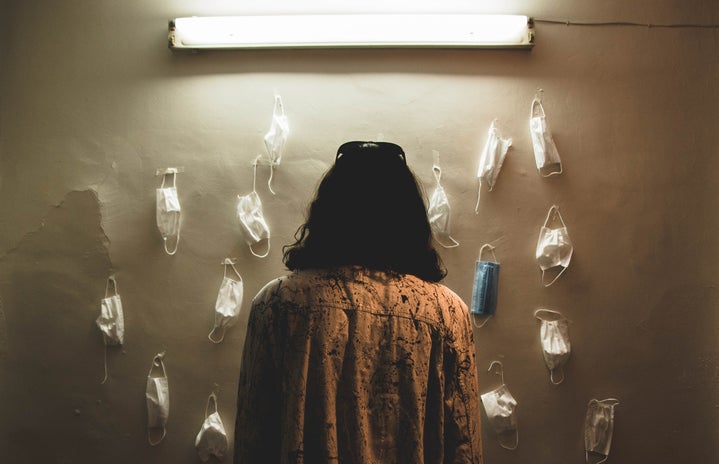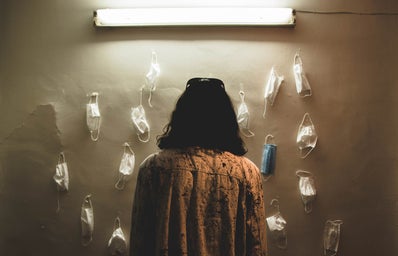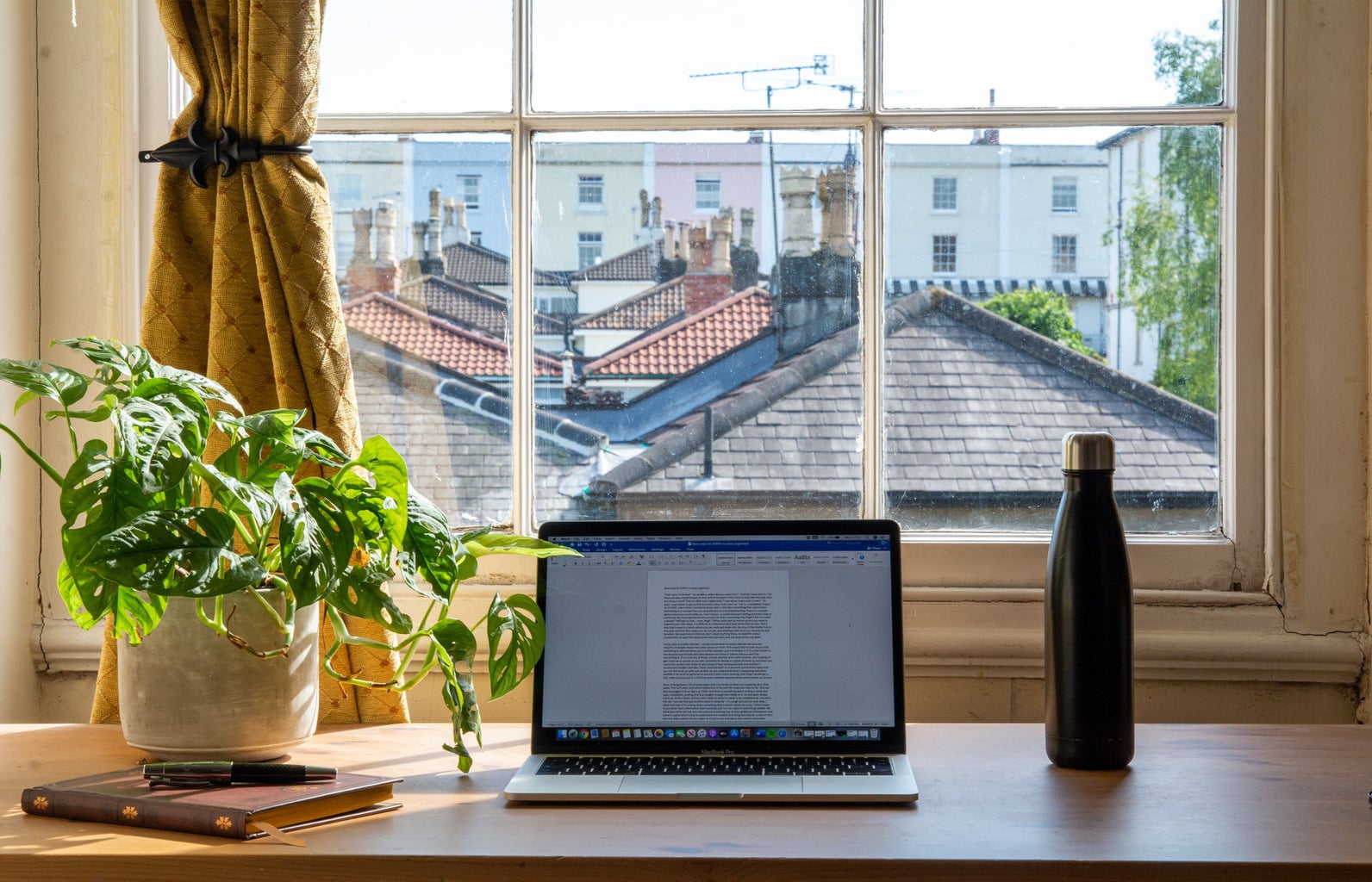We are truly in unprecedented times. A new kind of coronavirus is spreading and we have yet to understand its origins or our immunity against it. It is questionable whether we are going to remain at school, in person, or have to learn complex biological processes from home at our makeshift study spaces. What I am describing is unfortunately not March 2020, but October 2021. Now two years older and a college freshman, I look back and reflect on all the lessons we should have learned. Anxiety has been brewing in my head, not in regards to my load of coursework or the exams coming up, but for the uncertainty of being able to remain at my residential college. Whatever happens (and why it happens) is of course out of my control, but even then I cannot help but spiral into the worst-case scenario. Practicing both meditation and yoga cannot help me forget or combat the terrible time I had doing school from home, which is undoubtedly the worst-case scenario for me.
I believe it was the loss of a consistent routine, when school was “cancelled” the first time around, that affected my mental sanity so negatively. As my parents are both essential workers, I did find stability in having to be home all day…every day, but even that has its negative effects. For one, my sleeping pattern took no time in going completely off its rocker. My days and nights became interwoven with the only distinction being the time stamp on the news channel playing on our TV: news that always seemed to show the rising number of deaths from COVID-19. Besides that depressing fact, I had to reckon with my irregular and frankly disturbing sleeping pattern, which can be linked to several chronic health problems like depression (surprise!), sleep disorders, bipolar disorder, and seasonal affective disorder, among many others. Even when school started again, the constant changing between synchronous and asynchronous, or in-person and online classes, kept me in an unfortunate cycle of depression, lethargy, and indifference. This did not mean that I stopped caring about my classes or grades; that is something genetically wired into me. I did continue studying and kept at least my brain active through classes and AP tests. However, I was never truly present or engaged in my work. I did not ever actually feel stimulated when I solved differential equations for calculus or wrote my English papers. For context, I definitely connected with Anne Hathaway’s character in the Modern Love episode, “Take Me as I Am, Whoever I Am.” This glimpse into my quarantine is all to say, I did not have a good time. So, why are we actively engaging in things that might bring us back to this time? I am sure, through the many conversations I’ve had with my friends and others, that I am not the only one who went through this terrible time and does not want to go through it again. This time around, it feels as if there is more to lose, and not just academically.
As I see the cases rise again, now on my college campus as well in America, my frustration rises with them. The frustration stems from universal testing being discontinued in many places (or being tested becoming expensive), people not getting vaccinated, and still not complying with mask mandates. It really should be as simple as getting a vaccine, if you are medically able to, that has been tried and tested so many times with a development method that has been researched for years. At the very least, you should wear a mask to protect others, just as others are wearing a mask to protect you. All those lives we lost and grieved during the initial rise in cases served as warning of something that can definitely happen again. It scares me that this tremendous loss of people, memories, and experiences we all faced within the last year still does not bring us to agreement. Seeing that the President still has to pass mandates to urge people to get vaccines just adds to my disappointment. The fact that we have vaccines available but not enough people getting them is a privilege that should cause great concern. There are many other countries with high inoculation rates but low supply that could use those vaccines. And when those countries are not able to get the vaccines they would be more than willing to receive, it leaves them vulnerable to an unfathomable crisis.
Earlier this year, India went through that crisis. India dealt with a significant spike in cases with a dysfunctional healthcare system that could not handle all those that suffered. Sitting at my home an ocean away, I worried about my grandparents and other family still in India. Being so many miles away and unable to get on a flight back to a place that I once called home, one that was cruelly suffering, created a disheartenment that was unable to be fixed by a FaceTime and only increased with the live news coverage. Perhaps the last thing I should have done was be active on social media, but for once it did more good than harm. I was able to witness compassion in real time. I watched the South Asia creators I follow, as well as friends and even celebrities, post about hospitals with medicine and beds available, and donate to causes supplying aid to those that needed it. Our version of that would simply be getting vaccinated and wearing a mask. If what we all want is to go back to the normalcy that we desire so much, why can’t we learn from our mistakes and the more than 700,000 lessons* they taught us (as of October 3)?
Science is supposed to be challenged and questioned, but not mistrusted completely. As someone who wants to pursue the science field, I know not to discredit anything without questioning what has been provided to me, but sadly that’s exactly what is happening. My anxieties of another wave of COVID originated with a dread of possibly having to start my undergraduate education from home, just as my secondary education ended: with unarguably detrimental effects to mental health. Under those anxieties lay some scarier ones that did not take excessive overthinking to emerge. These newer strains of COVID-19 are still very much a threat to many people; in particular, those that are unvaccinated. To combat all my anxieties about the unprecedented future, I can easily busy myself with homework, rewatching my comfort shows and movies, and all the yoga in the world. But it cannot compete with the knowledge that a future of normalcy relies on the compassion we have for others. Compassion is an incredibly important virtue to have — I could even say it makes the world go round. Remember that quote that moms would usually post on their Facebook, “treat others the way you would want to be treated,” (the updated version is ‘TPWK’ à la Harry Styles)? Well, compassion is as simple as that. Choose to lead your actions with kindness, rather than politics, because in this delicate time a return to normalcy is truly based on the choices of the un-masked and un-vaccinated few.
*The number of deaths due to COVID-19 in the United States of America




